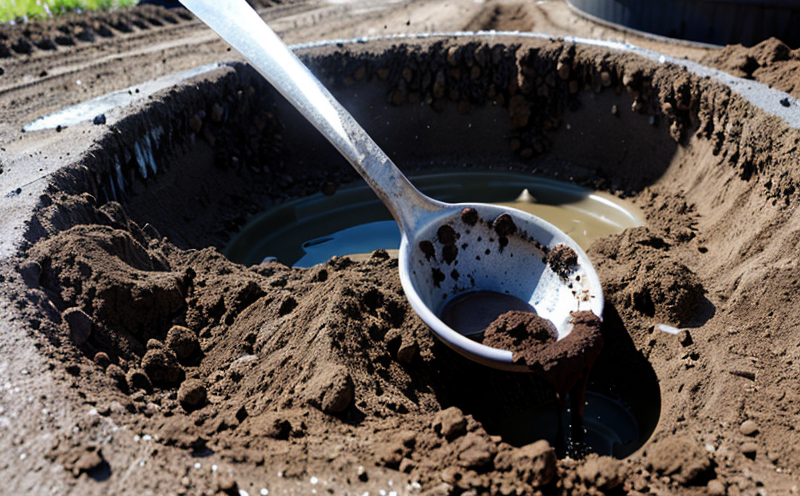ISO 6878 Phosphate in Sludge Extract Test
The ISO 6878 test method is widely recognized as a standard procedure for determining the total phosphorus content, specifically phosphate ions, in sludge extracts. This test is crucial for understanding the nutrient content of biosolids and sludges, which are by-products from wastewater treatment processes.
The process involves extracting the sample with water to dissolve the phosphate ions, followed by filtering and analyzing the solution using various analytical techniques such as spectrophotometry or ion chromatography. The test is particularly important for compliance with environmental regulations that aim to minimize nutrient runoff into natural water bodies, which can lead to eutrophication.
The standard procedure ensures accurate and reproducible results across different laboratories. It is essential for quality managers, R&D engineers, procurement officers, and compliance officers who need reliable data on the phosphate content of their sludge or biosolids samples.
Understanding the phosphate content helps in optimizing treatment processes, managing nutrient balances, and ensuring environmental sustainability. Compliance with this standard is critical for facilities that are subject to stringent environmental regulations related to wastewater management and biosolid reuse.
The method is applicable not only to municipal wastewater plants but also to industrial plants dealing with organic waste materials that produce sludge as a by-product of their processes. The test results provide valuable insights into the potential agricultural or land application suitability of these biosolids, thereby promoting sustainable resource management practices.
Applied Standards
| Standard Code | Title |
|---|---|
| ISO 6878:1995 | Determination of total phosphorus in sludge extracts |
| ASTM D3979-02(2014) | Standard Test Method for Determination of Phosphorus in Sludges and Biosolids by Spectrophotometry |
Industry Applications
- Municipal wastewater treatment plants for regulatory compliance.
- Industrial facilities that generate organic waste sludge.
- Agricultural operations considering biosolids application to farmland.
- Research and development in environmental biotechnology.
Quality and Reliability Assurance
The ISO 6878 test method is designed with strict quality control measures to ensure the reliability of phosphate content analysis. This includes precise sample preparation, standardized extraction methods, and rigorous calibration procedures for analytical instruments.
Laboratories performing these tests adhere to stringent quality management systems that comply with ISO/IEC 17025 standards. This ensures that all test results are accurate, repeatable, and traceable back to the original sample. The use of certified reference materials further enhances the reliability of the test results.
Regular internal audits and proficiency testing programs help maintain high-quality standards across different laboratories. These measures ensure that the test data is not only precise but also trustworthy, providing a solid foundation for decision-making processes in wastewater management and biosolid utilization.





